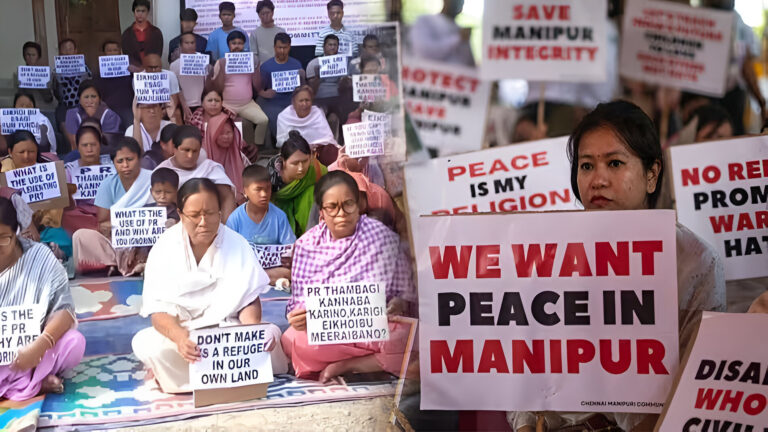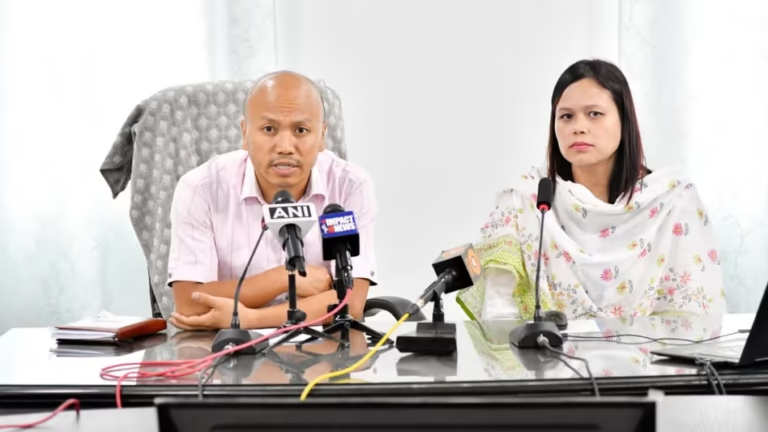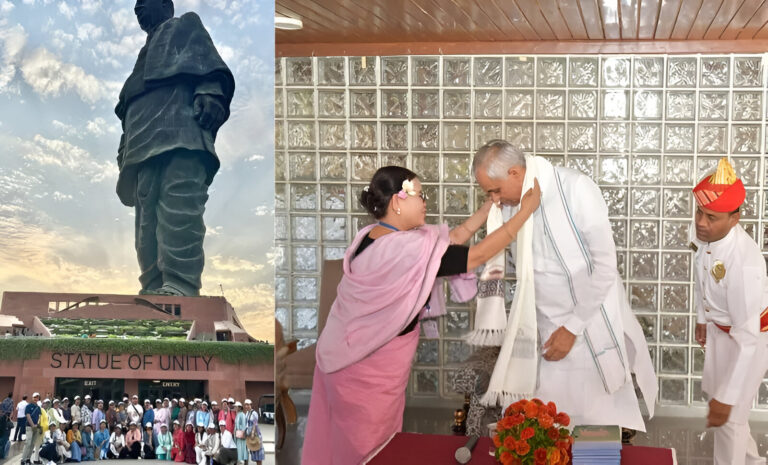Manipur CM N. Biren Declares War on Drugs Is for State’s Safety, Urges Media to Combat Fake News
Summary of the Article:
Manipur Chief Minister N. Biren Singh reaffirmed the state’s commitment to fighting illegal drug activities, emphasizing that the “War on Drugs” is for the safety of Manipur and is not aimed at any particular community. With massive drug seizures and poppy field destruction, Biren urged media outlets to actively counter misinformation during this critical time, ensuring that citizens receive verified news. He also highlighted government initiatives supporting journalists and encouraged unity for peace in the region.
In-Depth: Manipur’s War on Drugs and The Role of Media in Fighting Misinformation
Manipur, a northeastern state of India, has long been grappling with the twin challenges of drug trafficking and poppy cultivation. These activities, if left unchecked, pose not only a threat to public health but also to the socio-political stability of the region. In response to this growing menace, Chief Minister N. Biren Singh has declared an intensified “War on Drugs,” underlining that the mission is crucial for safeguarding the state’s future.
But what does this war on drugs entail, and why has the role of media become so critical at this juncture? Let’s take a deep dive into the Manipur government’s fight against drugs, how it’s being perceived, and the role that accurate news reporting plays in the larger narrative.
The War on Drugs: More Than a Law Enforcement Effort
When Chief Minister N. Biren Singh announced the renewed focus on drug-related issues, it wasn’t just a typical anti-narcotics initiative. The stakes in Manipur are incredibly high. For years, the region has been plagued by illegal poppy cultivation and the production of opium, which has fed into a dangerous narcotic supply chain.
Manipur’s proximity to the “Golden Triangle” (where the borders of Thailand, Laos, and Myanmar meet) has exacerbated the state’s vulnerability to drug trafficking. This infamous region is one of the world’s largest drug-producing zones, primarily dealing in opium and heroin. The direct consequence is that drug cartels often use Manipur as a route for trafficking, making the state a key battleground in the fight against narcotics.
The numbers tell a harrowing story. According to the Chief Minister, drugs worth approximately Rs. 60,000 crores have been seized since the start of the campaign. Additionally, over 18,000 hectares of poppy fields have been destroyed. These figures reflect the magnitude of the problem and the government’s determination to tackle it head-on.
But despite these efforts, the fight is far from over.
Not Against Communities, But For the State’s Safety
The drug problem in Manipur is not just about crime; it’s a deeply embedded issue that affects many sections of society, including economically vulnerable communities. To clarify potential misconceptions, N. Biren Singh has been explicit in stating that the war on drugs is not targeted at any particular community. There has been some tension and misunderstanding, especially among those who might feel targeted due to their involvement in poppy cultivation.
Many local farmers rely on poppy cultivation for their livelihood, and while the government has been cracking down on this practice, it’s also trying to offer alternatives. The message from Biren Singh is clear: this is not about vilifying individuals or communities but about saving the state and ensuring a better future for everyone. His government is working on rehabilitation measures, including introducing alternative farming options for those who have been engaged in poppy cultivation.
The Role of Media in The War on Drugs
In today’s digital age, information can spread like wildfire. Unfortunately, not all of it is true. Misinformation and fake news are rampant, especially when it comes to sensitive issues like drug enforcement, inter-communal tensions, and government policies. The Chief Minister has urged media houses in Manipur to take an active role in combating misinformation.
During his speech at the Golden Jubilee celebration of the All Manipur Working Journalists’ Union (AMWJU), Biren Singh acknowledged the critical role the media plays in shaping public opinion. He called on journalists to ensure that only verified and factual information reaches the people. The last thing Manipur needs, in these already volatile times, is for fake news to inflame emotions and lead to unrest.
A robust and responsible media is an essential pillar in the fight against drugs. While the government is doing its part by confiscating drugs and destroying illegal crops, it is up to the media to help bridge the communication gap between the government and the people. By delivering clear and accurate news, they can help dispel myths, correct misinformation, and encourage public cooperation in the war on drugs.
Government Support for the Media
Acknowledging the challenging conditions under which journalists work, the Manipur government has also rolled out several initiatives aimed at supporting the media fraternity. Welfare schemes have been introduced to ensure that journalists can perform their duties without financial or personal constraints.
Furthermore, Biren Singh has welcomed constructive feedback and suggestions from the media and other stakeholders. In his words, unity is key to restoring peace in the state. Whether through policy critique or community outreach, the media’s role in building this collective unity cannot be understated.
What Lies Ahead?
Manipur’s war on drugs is still in its early stages. The seizures and destruction of illegal crops are just the beginning of what will likely be a long-term effort. While the government’s actions are necessary for tackling the immediate issue, the next phase will need to focus on education, rehabilitation, and creating alternative livelihood opportunities for those affected by the eradication of poppy cultivation.
Additionally, the role of media will only grow more important as Manipur moves forward. Ensuring that the public is well-informed, and that rumors do not take root, will be essential to maintaining peace and stability in the state. In many ways, the war on drugs is also a war for the hearts and minds of Manipur’s people. It’s about convincing them that the government’s actions, while disruptive now, are in their best interest for the future.
Conclusion
The war on drugs in Manipur, led by Chief Minister N. Biren Singh, is a vital effort to curb the state’s drug problem and its impact on public safety and socio-economic stability. By taking strong measures to destroy illegal poppy fields and seize drugs, the government is tackling the issue at its roots. However, this is not just a law enforcement problem—it requires the support of local communities and the active role of the media to ensure accurate information spreads during these critical times.
As the state continues to navigate these challenges, it’s clear that the path ahead will need both strong governance and collective unity. Through rehabilitation, alternative livelihoods, and a commitment to fighting misinformation, Manipur can move towards a safer, drug-free future.
FAQs
- Why is Manipur focused on the war on drugs now? Manipur’s proximity to drug trafficking routes and the rise in illegal poppy cultivation have created a significant threat to public health and safety, necessitating government intervention.
- Is the war on drugs targeting specific communities? No, Chief Minister N. Biren Singh has emphasized that the campaign is not aimed at any particular community but is about ensuring the safety and future of the entire state.
- How has the government supported journalists in this effort? The government has rolled out welfare schemes and encouraged media houses to combat fake news while promoting accurate information to maintain social harmony.
- What role does the media play in this fight? Media houses are essential in disseminating verified news and countering misinformation, which can lead to unrest during this sensitive time.
- What steps are being taken to rehabilitate poppy farmers? The government is offering alternative livelihood options to farmers engaged in poppy cultivation to prevent economic hardship.




